Oxygen and Altitude | #ASM24BRIS

“TopMedTalk Down Under” continues ‘as live’ coverage of the 2024 Australian and New Zealand College of Anaesthetists (ANZCA) and Faculty of Pain Medicine’s Annual Scientific Meeting. This piece sees us ascend into the world of early human flight and the use of oxygen. Presented by Andy Cumpstey, Clinical lecturer, University Hospital Southampton NHS Foundation Trust and the University of Southampton, England, and Kate Leslie, Professor, Specialist Anaesthetist and Head of Research at the Royal Melbourne Hospital and the University of Melbourne with their guests Christine Ball, Honorary Curator at Geoffrey Kaye Museum; Anaesthetist, Alfred Hospital; Adjunct Associate Professor, Monash University and Dan Martin, OBE, Professor of Perioperative and Intensive Care Medicine, University of Plymouth, Consultant in anaesthesia and intensive care medicine, Derriford hospital. You can find out more about ANZCA here: https://www.anzca.edu.au/ Dan has previously appeared on TopMedTalk and we highly reccomend this piece here if you want more: https://topmedtalk.libsyn.com/asa-life-at-the-extremes-trials-on-everest-adapting-to-hypoxia
Oxygen – too much of a good thing? | ESAIC 2023
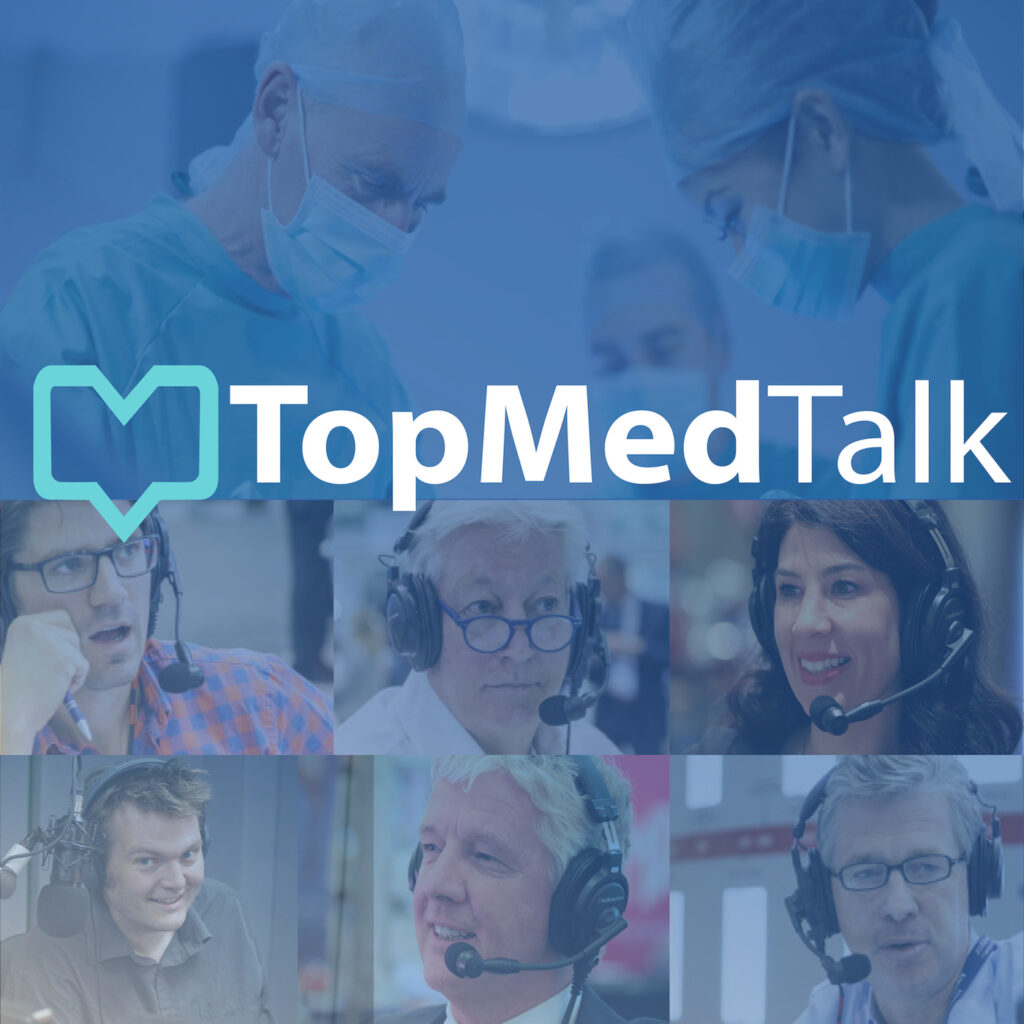
Our coverage of Euroanesthesia 2023 continues; The European Society of Anaesthesiology and Intensive Care (ESAIC) is the leading European Organisation for Anaesthesia, Intensive Care, Pain and Perioperative Medicine. TopMedTalk is proud to bring you ‘as live’ coverage of their annual conference. For more information on the work ESIAC do check out their website here https://euroanaesthesia.org/ This piece is a discussion about oxygen; can you have too much of a good thing? Join Desiree Chappell, Monty Mythen and Andy Cumpstey, NIHR Clinical Lecturer in Anaesthetics & Intensive Care Medicine, Southampton. We mention this paper here: https://www.ncbi.nlm.nih.gov/pmc/articles/PMC9438193/ And we discuss www.exovent.org
Perioperative oxygenation | EBPOM London 2020
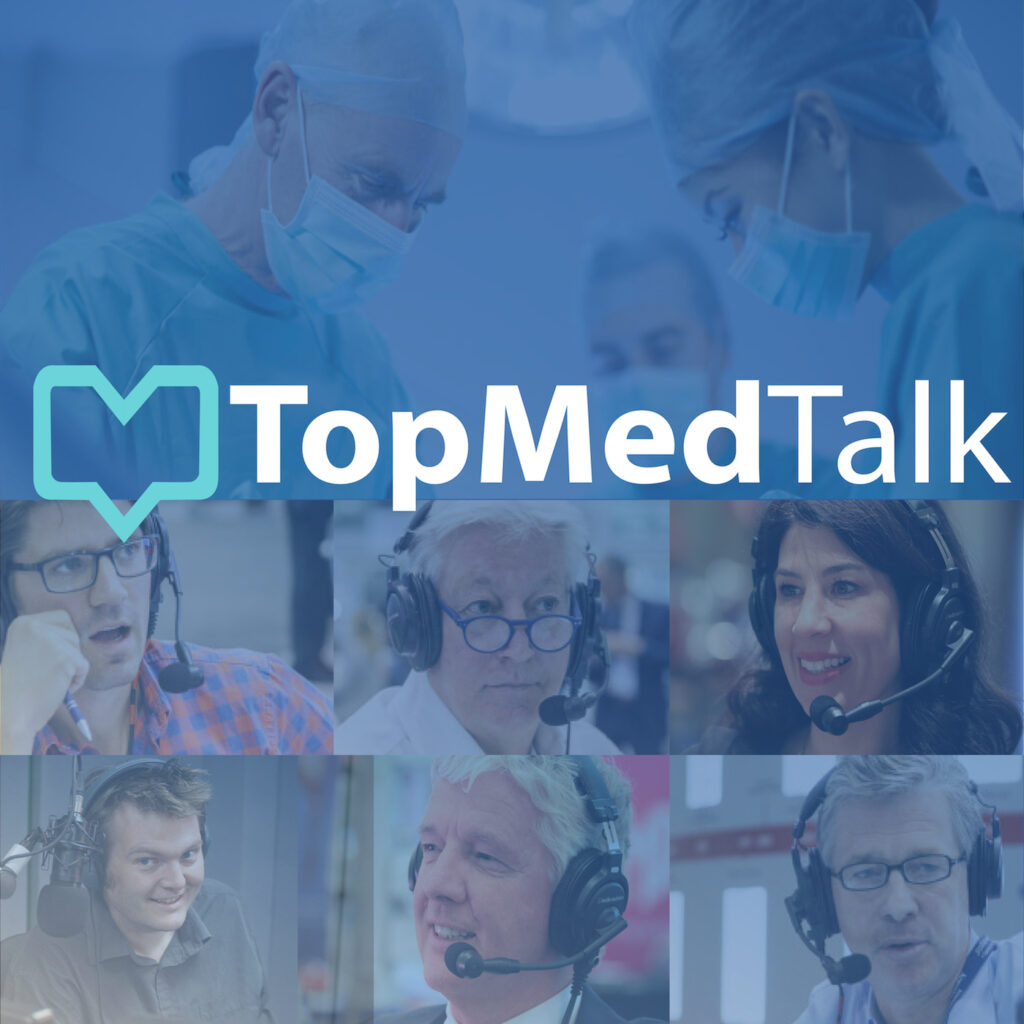
“Oxygen is the commonest drug that we give to our patients today during surgery and the general anaesthetic” but what do we really know and understand about it from a perioperative perspective? This talk illustrates why, even with some of the evidence and background physiology that we have at our fingertips today, the following questions are still perplexing: How much is too little oxygen? How much is too much oxygen? And how much is just the right amount of oxygen? Presented by Daniel Martin, OBE, Professor of Perioperative and Intensive Care Medicine, University of Plymouth and the Royal Free Hospital, London.
EBPOM London 2020 | Perioperative oxygenation
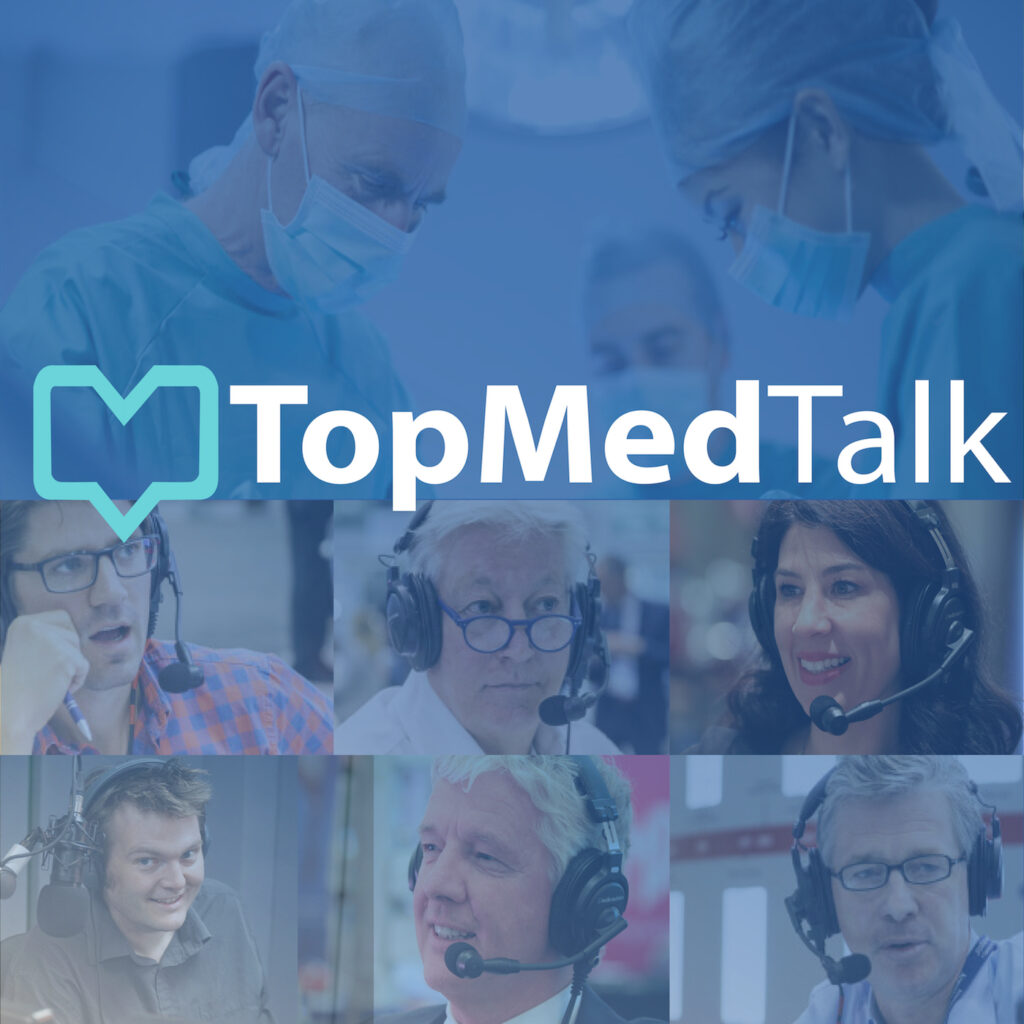
“Oxygen is the commonest drug that we give to our patients today during surgery and the general anaesthetic” but what do we really know and understand about it from a perioperative perspective? This talk illustrates why, even with some of the evidence and background physiology that we have at our fingertips today, the following questions are still perplexing: How much is too little oxygen? How much is too much oxygen? And how much is just the right amount of oxygen? Presented by Daniel Martin, OBE, Professor of Perioperative and Intensive Care Medicine, University of Plymouth and the Royal Free Hospital, London.
COVID 19 | Oxygen economy, CPAP and ventilators
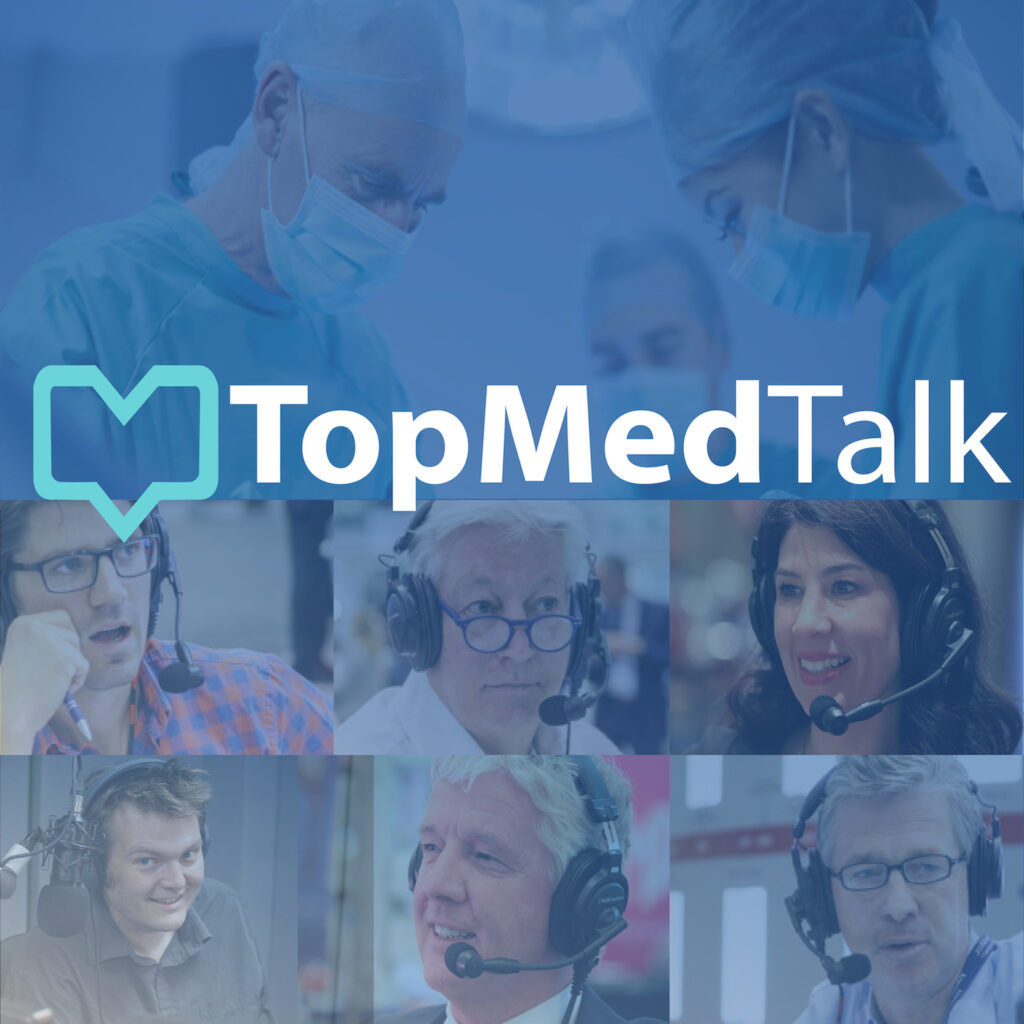
Our guest is an intensivist and specialist in dangerous transmissible diseases as well as being one of the scientists who took part in the Xtreme Everest expedition which investigated the effects of human tolerance of hypoxia. What about continuous positive airway pressure (CPAP)? Information suggests this may be more useful as we head into the pandemic stage “based on the experience the Italians are describing to us”. This piece looks at how the UK is preparing to tackle the global pandemic before asking some important questions about oxygen supplies. There’s a tendency for people to use more rather than less, should we look to reverse this? “We give people a range to put their oxygen saturation between and people naturally want to go for the higher end of that target,” in this time of crisis and potential shortages is it important to change that habit? “The whole National Health Service has changed its thinking…” the piece wraps with some thoughts about how enticing it is to see the UK’s Government and health service move to stop medics being bound by red tape and overly strict guidelines. Presented by Monty Mythen with his guest Dan Martin, OBE, Anaesthetist and Intensivist at the Royal Free Hospital and Reader at University College London (UCL). Link to the story about the Critical Care Nurse who attracted the nation’s sympathy in the press recently: https://www.standard.co.uk/news/uk/nurse-urges-public-stop-panic-buying-dawn-bilbrough-a4392596.html For more of our COVID 19 coverage go here: https://www.topmedtalk.com/covid-19/ Thank you to our sponsor Edwards Lifesciences. Edwards clinical education (ECE): https://www.edwards.com/clinicaleducation
TopMedTalk Down Under – that’s a wrap! | #ASM24BRIS
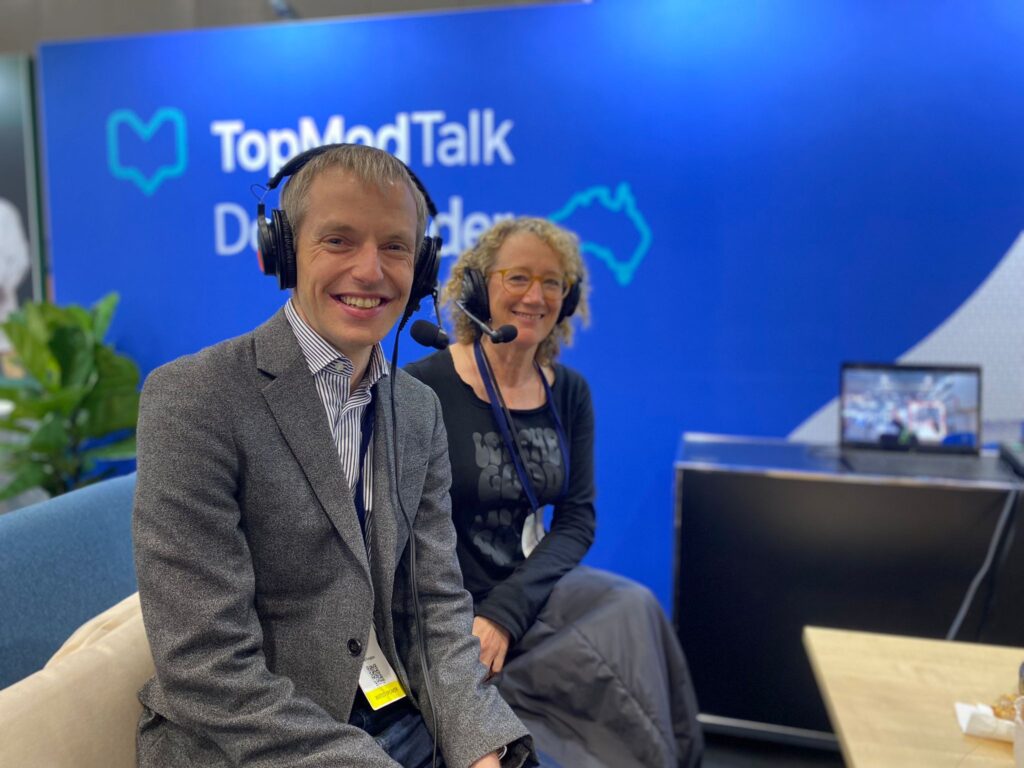
“TopMedTalk Down Under” presents more ‘as live’ coverage of the 2024 Australian and New Zealand College of Anaesthetists (ANZCA) and Faculty of Pain Medicine’s Annual Scientific Meeting. This piece looks back at some of the great guests and moments from this year’s scientific meeting. If you’d like to learn more go here: https://www.anzca.edu.au/ Presented by Andy Cumpstey, Clinical lecturer, University Hospital Southampton NHS Foundation Trust and the University of Southampton, England, and Kate Leslie, Professor, Specialist Anaesthetist and Head of Research at the Royal Melbourne Hospital and the University of Melbourne. — DOWNLOAD THE ENTIRE TOPMEDTALK DOWN UNDER SERIES NOW: TopMedTalk Down Under – exclusive coverage of the ANZCA meeting | #ASM24BRIS: https://traffic.libsyn.com/topmedtalk/ANZCA_TopMed_Talk_Day_1.mp3 TopMedTalk Down Under talks to… Chris Cokis and Kieran Davis | #ASM24BRIS: https://traffic.libsyn.com/topmedtalk/Current_ANZCA_President_and_FPM_Dean.mp3 Pain medicine, cannabis, ketamine and psilocybin in focus | #ASM24BRIS: https://traffic.libsyn.com/topmedtalk/Pain_Medicine.mp3 Sustainability in healthcare | #ASM24BRIS: https://traffic.libsyn.com/topmedtalk/Sustainability.mp3 Breaking Trials on TopMedTalk down under | #ASM24BRIS: https://traffic.libsyn.com/topmedtalk/Breaking_Trails.mp3 TopMedTalk Down Under Day 2 Begins | #ASM24BRIS: https://traffic.libsyn.com/topmedtalk/Day_1_Recap_TMTDU.mp3 Oxygen and Altitude | #ASM24BRIS: https://traffic.libsyn.com/topmedtalk/Oxygen_and_Altitude.mp3 Are you ready for a leadership position in healthcare? | #ASM24BRIS: https://traffic.libsyn.com/topmedtalk/xLeadership.mp3 Continuing professional development | #ASM24BRIS: https://traffic.libsyn.com/topmedtalk/Workshops_and_CPD.mp3 Global Health | #ASM24BRIS: https://traffic.libsyn.com/topmedtalk/Global_Health.mp3 TopMedTalk down under – day 3 begins | #ASM24BRIS: https://traffic.libsyn.com/topmedtalk/Recap_3.mp3 Publishing online and in print | #ASM24BRIS: https://traffic.libsyn.com/topmedtalk/Publishing.mp3 Anaesthesia training in Mongolia | #ASM24BRIS: https://traffic.libsyn.com/topmedtalk/Anaesthesia_in_mongolia.mp3 Paediatric Trials | #ASM24BRIS: https://traffic.libsyn.com/topmedtalk/Paediatric_Trails.mp3 The new President of the Australian and New Zealand College of Anaesthetists and Dean of the Faculty of Pain Medicine | #ASM24BRIS: https://traffic.libsyn.com/topmedtalk/President_and_FPM_Dean.mp3 Delirium | #ASM24BRIS: https://traffic.libsyn.com/topmedtalk/TMTDU_Delirium.mp3
TopMedTalk down under – day 3 begins | #ASM24BRIS

“TopMedTalk Down Under” continues ‘as live’ coverage of the 2024 Australian and New Zealand College of Anaesthetists (ANZCA) and Faculty of Pain Medicine’s Annual Scientific Meeting. Here we recap on what we’ve seen and look forward to day three. If you’d like to catch up with our coverage here’s the output from the previous day: Oxygen and Altitude | #ASM24BRIS – https://traffic.libsyn.com/topmedtalk/Oxygen_and_Altitude.mp3 Are you ready for a leadership position in healthcare? | #ASM24BRIS – https://traffic.libsyn.com/topmedtalk/xLeadership.mp3 Continuing professional development | #ASM24BRIS – https://traffic.libsyn.com/topmedtalk/Workshops_and_CPD.mp3 Global Health | #ASM24BRIS – https://traffic.libsyn.com/topmedtalk/Global_Health.mp3 Presented by Andy Cumpstey, Clinical lecturer, University Hospital Southampton NHS Foundation Trust and the University of Southampton, England, and Kate Leslie, Professor, Specialist Anaesthetist and Head of Research at the Royal Melbourne Hospital and the University of Melbourne. You can find out more about ANZCA here: https://www.anzca.edu.au/
Regular Voices
Regular Voices Sol Aronson Regular voice on TopMedTalk Solomon Aronson is a tenured Professor at Duke University and Executive Vice Chairman in the Department of Anaesthesiology. Vicki Morton Regular voice […]
Near infrared spectroscopy (NIRS) Round Table | EBPOM Chicago

Near infrared spectroscopy (NIRS) … ‘a variation of pulse oximetry; it transmits red and infrared light into tissue’ measures information from arterial venous and capillary blood simultaneously to deduce tissue saturation; an aggregate estimate of arteriovenous capillary blood and whatever tissue you’re shining the light into. ‘So typically, we’re using it in on the brain at least in the cardiac and vascular space, but people also in other areas like the surgical ICU, can use it to measure muscle oxygenation as well’. Learn how this technique could enhance your practice, what its potential for advancement is and where its limits lie. This piece is likely to be of critical interest to most cardiac surgeons and those who work alongside them. This piece was generously supported and brought to you by Medtronic. Presented by Desiree Chappell and Monty Mythen with their guests Robert Thiele, Cardiac Anesthesiologist and Intensivist at the University of Virginia, Carol Ann Rosenberg Associate Director of Perfusion and ECMO, Kenan Yount, Cardiac Surgeon and Director of the Valve center and Director of the Aortic Center at the University of Virginia.
Ernest Henry Starling Plenary Lecture, David Story | EBPOM 2021
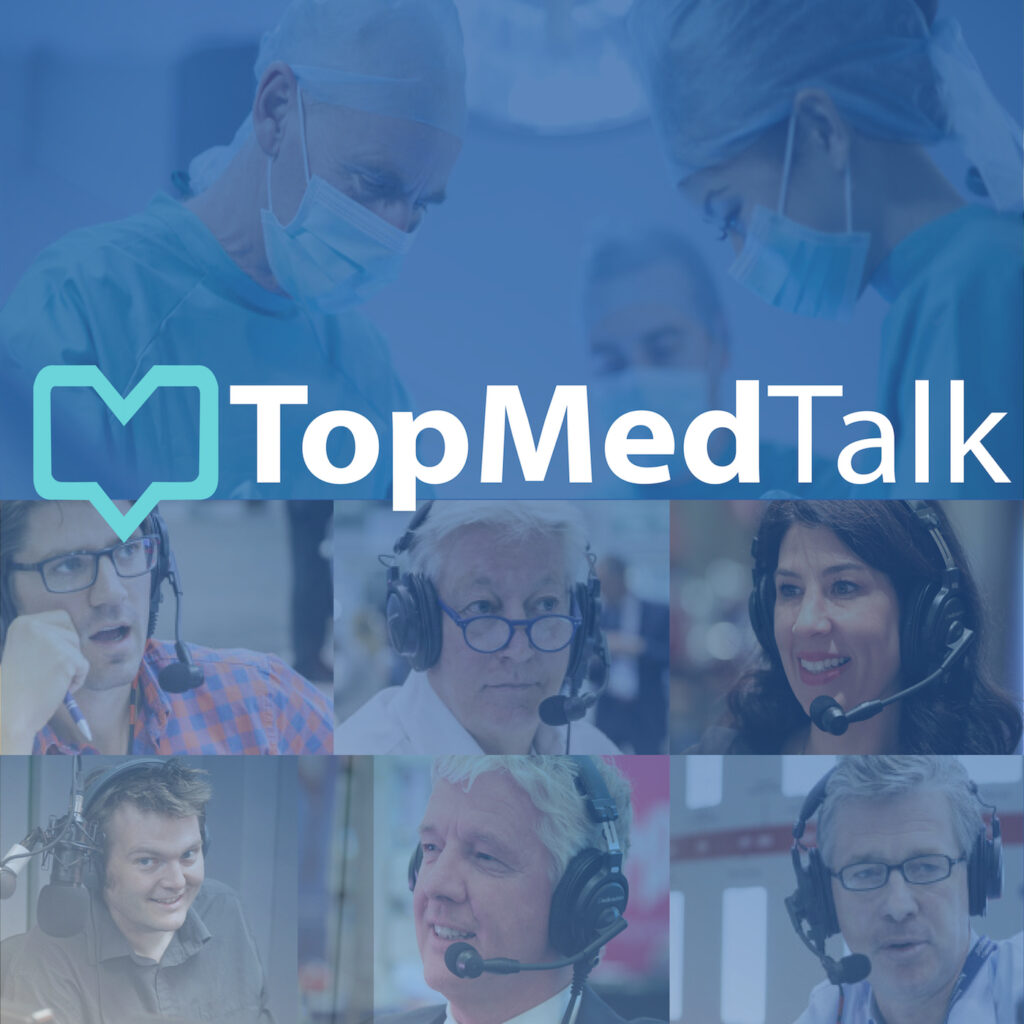
One of the standout moments of Evidence Based Perioperative Medicine (EBPOM) 2021 this piece is a bonus podcast for the holiday season which looks in detail at oxygen from a perioperative medicine perspective, amongst other things this talk throws up some troubling and challenging observations about pulse oximetry. The piece is introduced by Mike Grocott, Professor of Anaesthesia and critical care at the University of Southampton. Presented by David Story, Professor and Foundation Chair of Anaesthesia at the University of Melbourne; Head of the University Department of Critical Care and a member of Council of the Australian and New Zealand College of Anesthetists (ANZCA) and the Chair of the ANZCA Safety and Quality Committee. Like this, want more? Check out www.ebpom.org now, great prices on conferences are available including access to high quality video presentations on demand.
